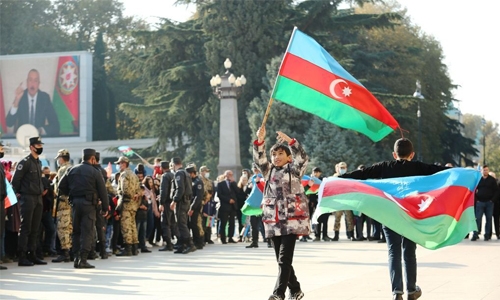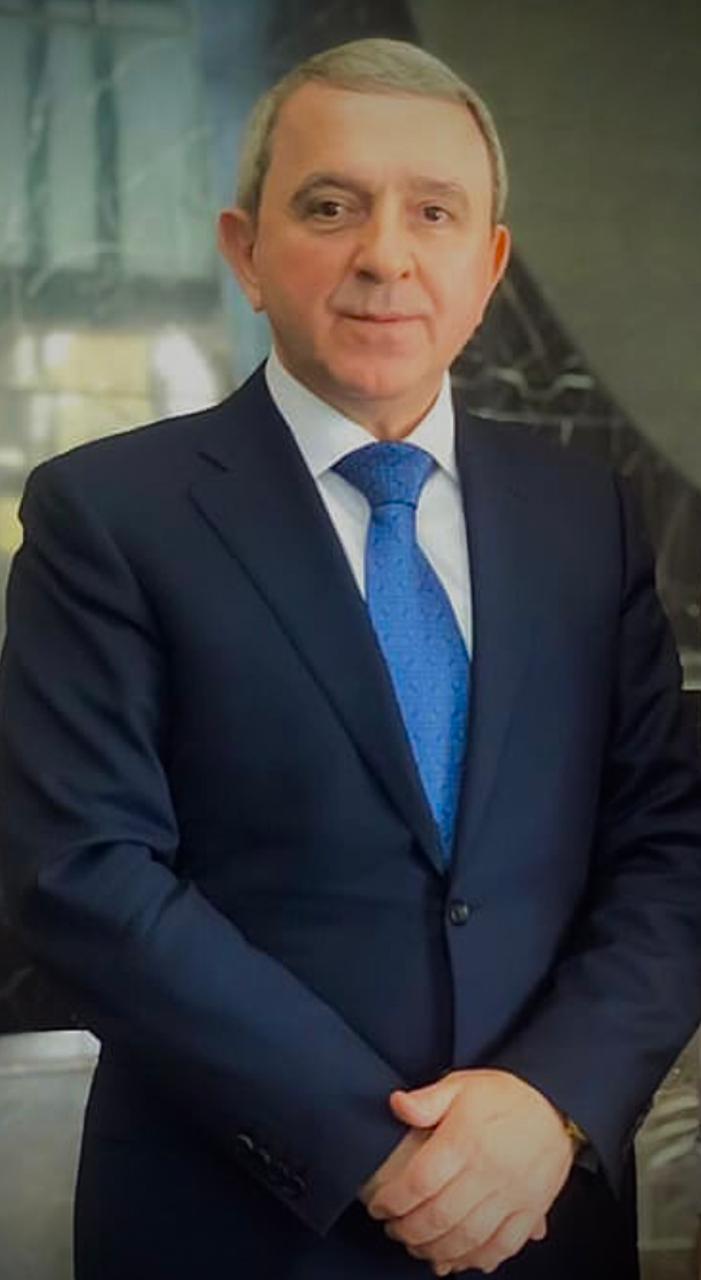8th November - Victory Day in the Republic of Azerbaijan
By Shahin Abdullayev
In response to Armenia’s consecutive provocations and military aggression, on September 27, 2020, the Azerbaijani people joined the Armenia-Azerbaijan Nagorno-Karabakh War to put an end to Armenia’s almost thirty-year occupation policy and liberate the Azerbaijani lands from occupation.
As a result of 44-day hostilities, the Azerbaijani people gained a historic victory and Azerbaijan’s territorial integrity was restored. The liberation of the city of Shusha, dear to every Azerbaijani, the pearl of Karabakh, after 28 years of occupation on November 8 played a decisive role in the fate of the war, led to the recognition of defeat of the enemy’s political and military leadership and cessation of the hostilities.
Taking into account the historical significance of the city of Shusha and its liberation from occupation, this unprecedented victory- Victory Day, which has become a triumph of the combat determination and strength of our people, which is of exceptional importance for the future development and prestige of our state, will be solemnly celebrated every year on November 8.
The Republic of Azerbaijan liberated the motherland not through negotiations, not as a result of any concession made by Armenia, but by shedding blood, losing martyrs, demonstrating self-sacrifice on the battlefield, restoring our territorial integrity and our national dignity.
Armenia, for about 30 years, kept under occupation almost 20 per cent of the territory of our country. The occupation was accompanied by notorious war crimes and crimes against humanity.
Ethnic cleansing carried out by Armenia resulted in more than one million Azerbaijanis became refugees and internally displaced persons. The UN Security Council adopted four resolutions in 1993 demanding immediate, complete, and unconditional withdrawal of armed forces of Armenia from Azerbaijan’s occupied territories.
Throughout the conflict, Armenia with its attitude and actions demonstrated that its sole aim was to maintain the status quo and consolidate the occupation.
On many occasions, Azerbaijan raised the necessity of imposing sanctions on Armenia. Regretfully, there was no international sanction imposed on Armenia to enforce the implementation of the UN Security Council resolutions. In July 2020, Armenia perpetrated military provocation along the state border with Azerbaijan.
As a result of the artillery strike inflicted on Azerbaijan’s Tovuz district, 13 military servicemen and civilians were killed. On the 27th of September last year, Armenia launched a large-scale attack against military positions and civilians of Azerbaijan.
In response, Azerbaijan, using its inherent right of self-defence as enshrined in article 51 of the UN Charter, started a counter-attack on its own territories against Armenia. During the 44-day war, Azerbaijan liberated a large part of occupied territories, including the cities of Jabrayil, Hadrut, Fuzuli, Zangilan, Gubadli and Shusha.
In total, more than 300 cities and villages were liberated on the battlefield. Armenia had to sign an act of capitulation on 10 November 2020.
Accordingly, Armenia was obliged to withdraw its troops from the remaining part of Azerbaijan’s territories, namely Aghdam, Lachin and Kalbajar regions.
Azerbaijan, itself, enforced the implementation of the abovementioned UN Security Council resolutions, probably, it was the first case in the world since the establishment of the UN. Azerbaijan resolved the 30-year-long conflict and restored its territorial integrity and historical justice by military-political means. The Nagorno-Karabakh conflict was left in the past. There is no administrative-territorial unit called Nagorno-Karabakh in Azerbaijan.
The Republic of Azerbaijan has created Karabakh and Eastern Zangazur economic zones by the Presidential decree signed on 7 July this year. Using this occasion, we would like to call on all the international community to avoid using legally non-existing, politically biased and manipulative names while referring to our territories.
During visits to liberated territories, foreign diplomats, representatives of international organizations and international journalists have witnessed the barbarism committed by Armenia.
The facts of the full destruction of cities and villages, including the cultural and religious heritage sites of Azerbaijani people have been widely documented and broadcasted by international media and independent experts.
Out of 67 mosques in the territories which were under Armenian occupation, 65 have been razed to the ground and the remaining 2 have been severely damaged and desecrated, including by being used as stables for pigs and cows in total disrespect to all Muslims of the world.
Even the graveyards were desecrated, destroyed, and looted. As the conflict is over, Azerbaijan has already announced its readiness to embark upon the border delimitation and demarcation between Azerbaijan and Armenia, and to start negotiations on a peace agreement with Armenia, based on mutual recognition of sovereignty and territorial integrity of each other.
Such an agreement would turn our region into a region of peace and cooperation. The people of Azerbaijan celebrate the first anniversary of Victory Day, written in golden letters in the history of Azerbaijan.
During this war, in the struggle for the sovereignty and territorial integrity of our country, which is our work of truth and honour, our people united around President, Supreme Commander-in-Chief Ilham Aliyev, demonstrated determination, will and unity, dealt heavy blows to the enemy and forced him to surrender.
Azerbaijan commemorates with deep respect and esteems the memory of all our Martyrs who died for the independence, sovereignty, and territorial integrity of Azerbaijan on November 8, which is celebrated as Victory Day.
Shahin Abdullayev is Azerbaijan’s ambassador to Saudi Arabia. The views and opinions expressed in this article are those of the author and do not necessarily reflect the official policy or position of the Daily Tribune.
Related Posts


